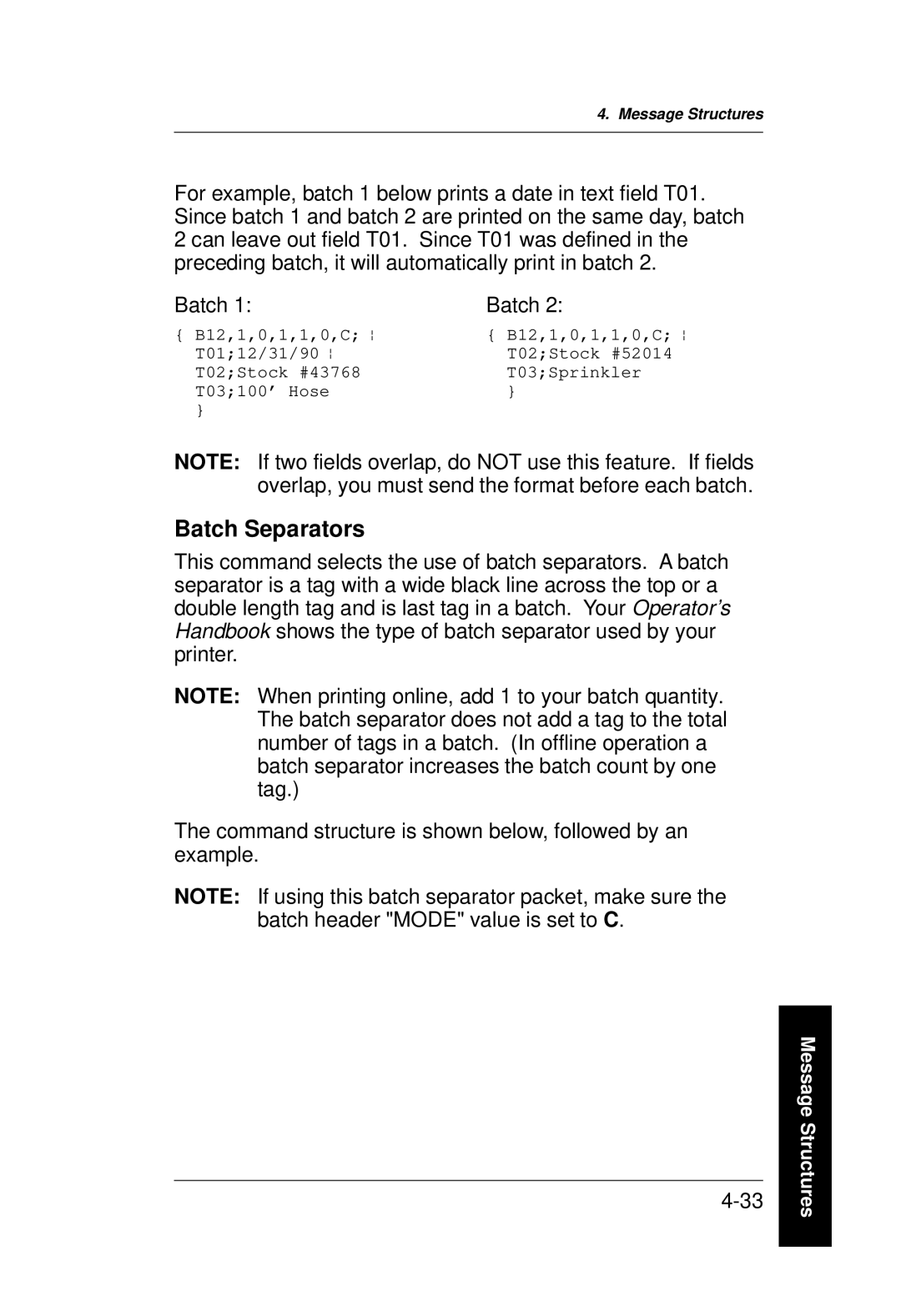
4. Message Structures
For example, batch 1 below prints a date in text field T01. Since batch 1 and batch 2 are printed on the same day, batch 2 can leave out field T01. Since T01 was defined in the preceding batch, it will automatically print in batch 2.
Batch 1: | Batch 2: |
{ B12,1,0,1,1,0,C; p | { B12,1,0,1,1,0,C; p |
T01;12/31/90 p | T02;Stock #52014 |
T02;Stock #43768 | T03;Sprinkler |
T03;100' Hose | } |
} |
|
NOTE: If two fields overlap, do NOT use this feature. If fields overlap, you must send the format before each batch.
Batch Separators
This command selects the use of batch separators. A batch separator is a tag with a wide black line across the top or a double length tag and is last tag in a batch. Your Operator's Handbook shows the type of batch separator used by your printer.
NOTE: When printing online, add 1 to your batch quantity. The batch separator does not add a tag to the total number of tags in a batch. (In offline operation a batch separator increases the batch count by one tag.)
The command structure is shown below, followed by an example.
NOTE: If using this batch separator packet, make sure the batch header "MODE" value is set to C.
